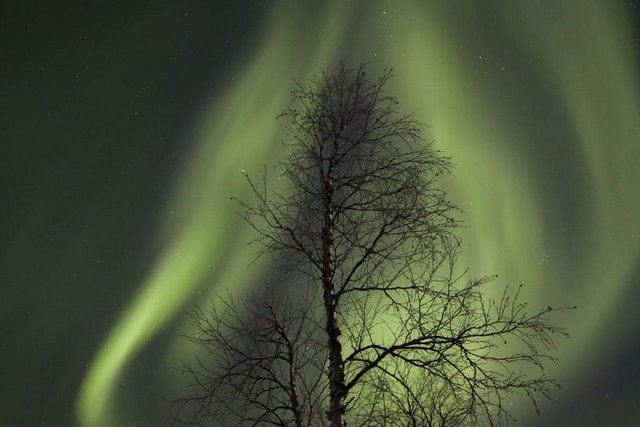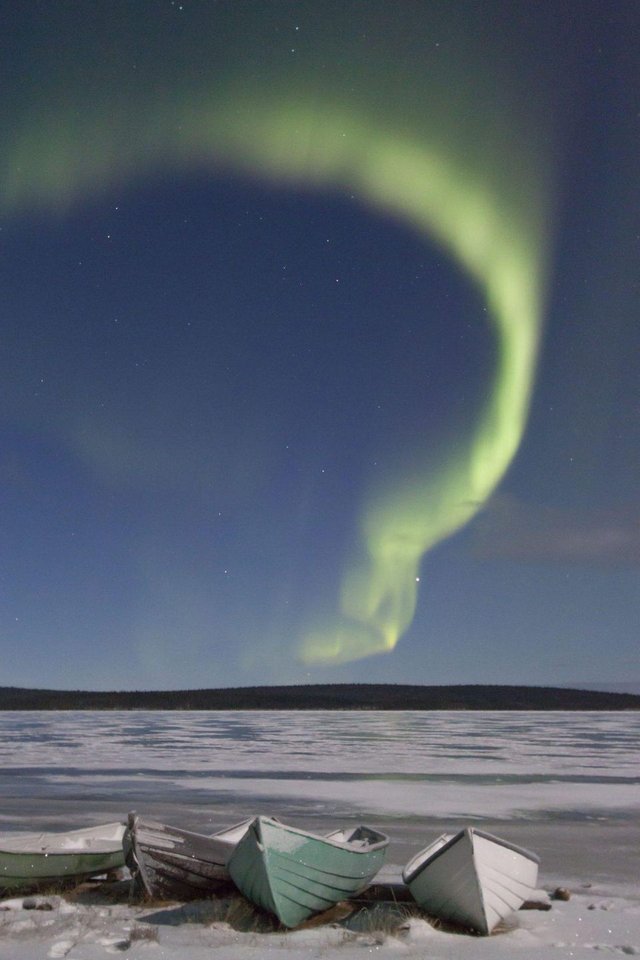The Secret Techniques You Need To See (And Survive) The Northern Lights
I get so many people asking me "where is the best place to see the Northern Lights?".
That's the easy part.
The difficult part is trying to get across that to see the Northern Lights requires some careful planning, patience, and luck. So here's my one piece of advice:
Don't visit the Arctic Circle for ONE night and expect to see a magnificent display of aurora borealis. Go for five nights minimum.
Flying into Fairbanks, Alaska for one night during a week's stay in Anchorage? Don't do it. Fancy Helsinki for a holiday, with a short side-trip to Rovaniemi? Forget it. Yes, go to Fairbanks, Yellowknife in Canada, Rovaniemi and Ivalo in Finnish Lapland, Kiruna in Swedish Lapland, Tromso in Norway, and anywhere in Iceland outside Reykjavík, but go for at least five nights. If you're lucky, one of those nights will be clear. Then you might see the Northern Lights.
So do something else for a few days … dodging reindeers in a small downhill ski resort, a cross-country skiing expedition, snowshoeing through the beautiful forests and fells. Go on a long dog-sledding expedition. Eat a reindeer steak (seriously, definitely eat a reindeer steak).
Just don't make a foolish plan to fly somewhere to stand outside for an hour. You'll probably end the night shouting at clouds.
So here's what you should do instead.

You can see the Northern Lights at any time of the month, but either side of New Moon is best.Jamie Carter
Even if the skies are cloudy most of the time, you want to be in the right places at the right time to maximize your chances of seeing a strong display of the Northern Lights. After all, unforgettable experiences don't just happen by chance, and finding the Northern Lights is only partly about luck. So what are the secrets?
Where to see the Northern Lights
The Northern Lights occur in an oval around the North Pole, between around 66-69° North latitudes (or thereabouts – it's not yet an exact science). Here are the regions and key locations to see the Northern Lights:
Alaska, USA: Fairbanks, Coldfoot
Northern Canada: Yellowknife, Iqaluit, Inuvik
Iceland: Thingvellir National Park, Snaefellsnes Peninsula, Hella, Skógar, Jökulsárlón and Akureyri (but anywhere outside Reykjavík)
Greenland: Ilulissat, Sisimiut, Kangerlussuaq
Norway: Kirkenes, Lofoten Islands, Harstad
Sweden: Kiruna, Jukkasjärvi, Abisko National Park, Jokkmokk
Finland: Levi, Saariselkä, Ivalo, Inari, Pallas-Yllästunturi National Park, Kilpisjärvi, Rovaniemi
Russia: Murmansk, Barentsburg
Top tip: Iceland is the warmest place to see the Northern Lights, thanks to the jet-stream. Expect freezing temperatures, but not much under.
When to see the Northern Lights: time of night
Although you will hear some people say that the Northern Lights lights tend to appear at a specific time of night, this is usually because that is when they have seen it themselves. Scientifically speaking, the Northern Lights can happen at any time of day or night. They are as likely to be active at lunchtime as they are in the middle of the night. The only reason that the Northern Lights observing season is generally thought to be between September and March is that that is when there is sufficient darkness. After all, in the summer, Arctic regions have extremely long days, and virtually no darkness.
Top tip: If it's dark outside, be ready to spend a few hours outside at a moment's notice because when they start there will be no time to waste.
How to get a Northern Lights wake-up call
If there are clear skies during your trip and you don't see the Northern Lights, that's probably because you were asleep. If your hotel does have an aurora wake-up call service, it does help. Usually, whoever is working on reception during the night will keep an eye out for Northern Lights, and when they appear, phone all the guests who have signed up for the service.

The Northern Lights photographed under a Full Moon almost look like daylight shots.Jamie Carter
When to see the Northern Lights: moon phase
Most people who travel to see the Northern Lights – or to go stargazing – pay no attention to the moon's phase. That's a big mistake because although you can see a powerful display of aurora borealis while the moon is bright, it can make a weak display invisible. Basically, the more moonlight there is in the night sky, the fainter the display will be. If you plan to take long exposure photographs of them, know that the presence of a full moon can make your images appear as if you took them in daylight.
So plan your Northern Lights hunt during the 'stargazing window', that period of the month when there is little or no moonlight between darkness and midnight. For most of the world that occurs from about three or four days before New Moon until three or four days afterward, but in the Arctic Circle, it's stretched-out somewhat because of how low the Sun is in the sky during winter. That often makes the old and young moon invisible for days on end. Here's when the early evening night skies will be more or less moonless from around dusk until midnight (but do the exact check moonrise and moonset dates for your destination. This is only a rough guide):
Nov. 3-13, 2018
Dec. 2-12, 2018
Dec. 30, 2018-Jan. 10, 2019
Jan. 28-Feb. 8, 2019
Feb. 25-March 8, 2019
March 25-April 5, 2019
When to see the Northern Lights: spring equinox
It marks the first day of Spring, but few realize that the vernal equinox is one of the best times of the year to see the Northern Lights. It marks the exact time when the Sun moves north across the celestial equator – the Earth's equator projected into the sky – but it also sees the Sun's solar wind and Earth 'in sync' with each other. This is because the magnetic field of the solar wind is, at this time of year, more likely to accelerate charged particles down the field lines of Earth's magnetosphere.
So visit the Arctic Circle on or close to Wednesday, 20 March, the date of the vernal equinox, and you will have a higher chance of seeing a Northern Lights display.
You just got a @topnails upvote!
For you to say, it will never be too old to have a new goal or to dream a new dream.
Posted using Partiko iOS